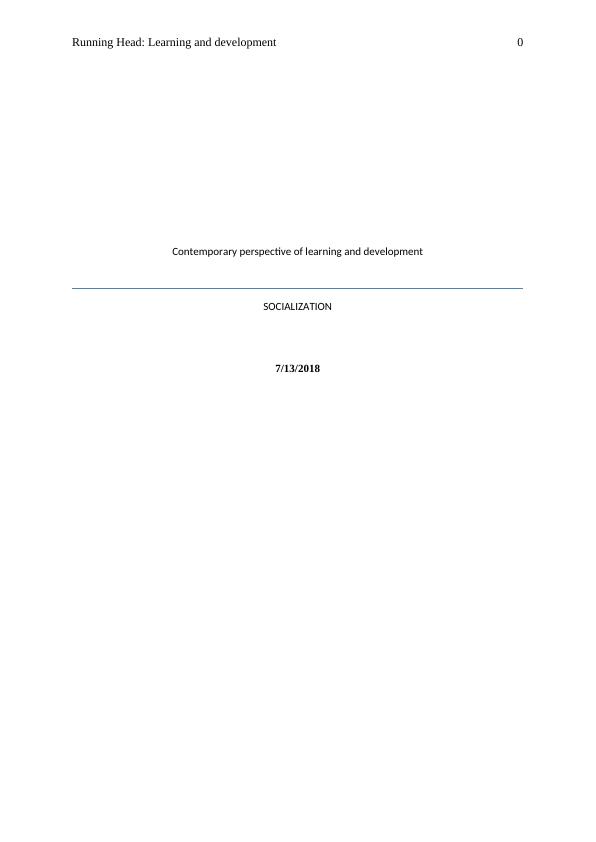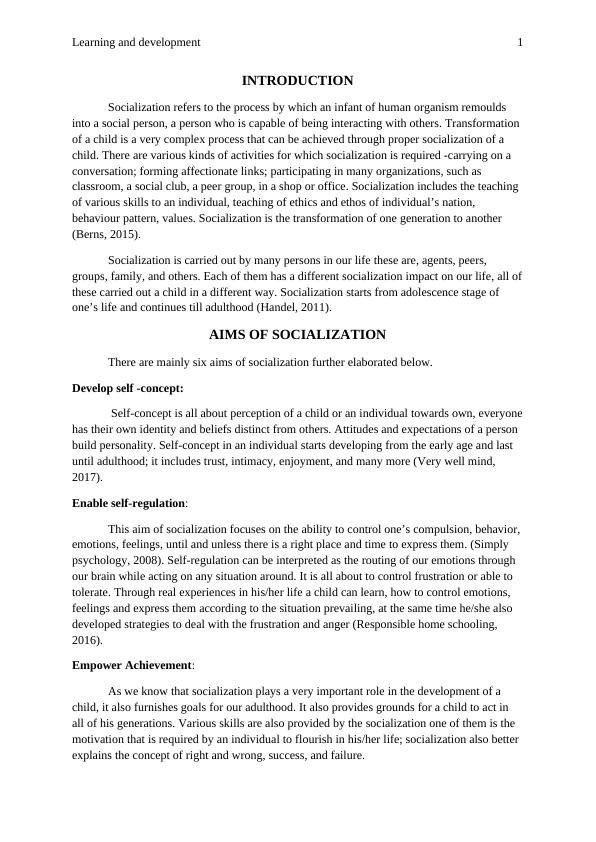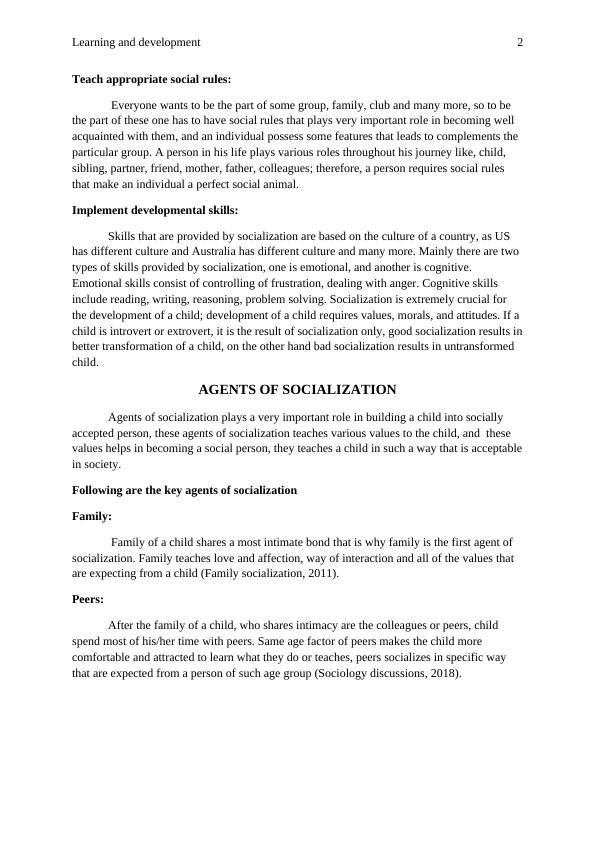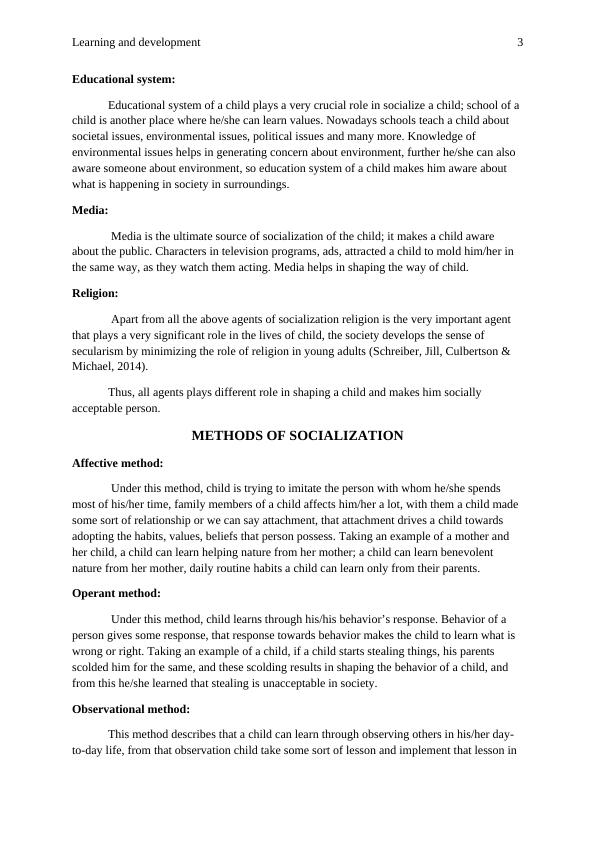Contemporary Perspective of Learning and Development
This week's topic is: Overprotected child. The focus is on revisiting multiple perspectives about children and reflecting on personal views of 'the child' and how it impacts teaching practice.
11 Pages3483 Words416 Views
Added on 2023-06-14
About This Document
This article discusses the contemporary perspective of learning and development through socialization. It covers the aims, agents, methods, and impact of socialization on a child's learning and development. The article also includes stages of learning and development and factors that influence the teaching of a child.
Contemporary Perspective of Learning and Development
This week's topic is: Overprotected child. The focus is on revisiting multiple perspectives about children and reflecting on personal views of 'the child' and how it impacts teaching practice.
Added on 2023-06-14
ShareRelated Documents
End of preview
Want to access all the pages? Upload your documents or become a member.
Factors Influencing Childhood Development
|10
|2356
|488
Impact of Socialization on Children’s Learning and Development
|9
|3291
|414
THE CHILD DEVELOPMENT
|12
|2579
|25
Assignment on Child Development Concept
|5
|958
|15
Growth and Development
|12
|1225
|472
Factors Influencing Child Development and Identity
|11
|3077
|219




